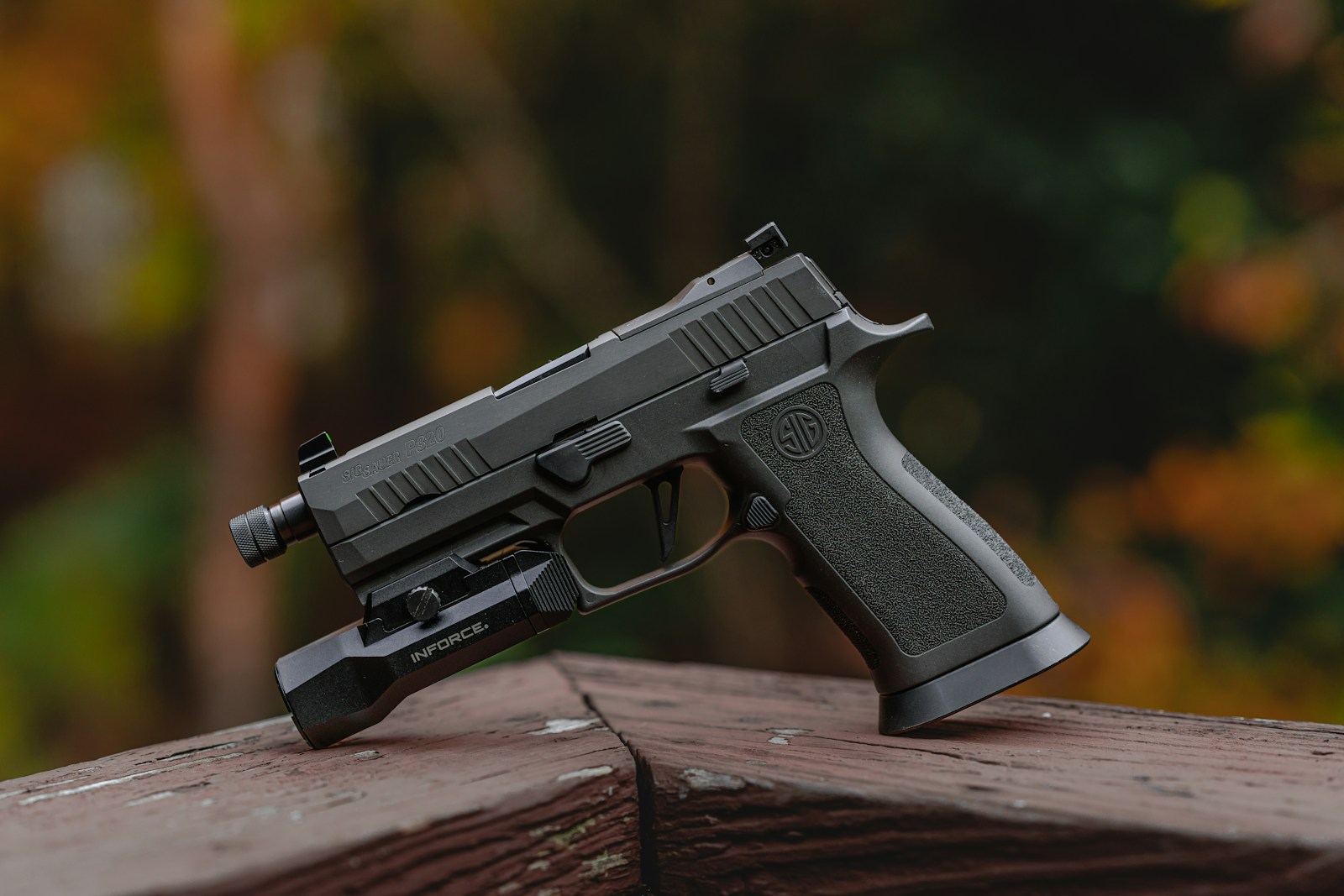Key Takeaways:
- Police departments are reselling a handgun called the P320, which has reportedly discharged without the trigger being pulled.
- At least 120 incidents of unintended firing have been reported, resulting in over 110 injuries and one death.
- Despite safety concerns, 12 agencies resold thousands of these guns to the public.
- Critics argue that reselling faulty firearms could fuel crime and raise ethical concerns.
- SIG Sauer, the manufacturer, denies the claims and continues to sell the P320.
Police Departments Sell Potentially Dangerous Guns to the Public
Police departments across the U.S. are reselling a popular handgun, the SIG Sauer P320, even after reports of the gun firing unexpectedly without the trigger being pulled. This raises serious safety and ethical concerns, especially since these guns are being sold to the public.
What Is the P320?
The P320 is a popular handgun used by law enforcement agencies nationwide. It’s known for being reliable and durable. However, over the past few years, reports have emerged of the gun discharging on its own, causing injuries and even death.
Why Do Police Departments Resell Old Guns?
Reselling old firearms is a common practice for police departments. They often do this to make extra money for their budgets. The guns are usually in good condition and inexpensive, making them attractive to civilian buyers. However, reselling a firearm with known safety issues is a risky decision.
Why Are People Worried?
Critics argue that selling used police guns to the public can lead to more crime. If a defective gun like the P320 ends up in the wrong hands, it could cause accidental shootings or even intentional harm. For example, if a civilian buys one of these guns and it accidentally fires, the consequences could be deadly.
What Happens When Guns Are Sold?
A recent investigation found that over 4,000 P320s were resold to the public. While some departments stopped using the gun due to safety concerns, others chose to sell them instead of destroying or returning them to the manufacturer, SIG Sauer.
The Consequences of Selling Defective Guns
Accidental discharges from the P320 have already led to serious harm. Imagine a scenario where a civilian buys one of these guns, unaware of its history, and it accidentally fires. The consequences could be devastating, not just for the buyer but also for bystanders.
Ethical Concerns: Should Police Sell Questionable Guns?
Ethics experts are speaking out against the practice of reselling potentially dangerous guns. They argue that police departments have a duty to protect the public, not put them at risk. Selling defective firearms violates this responsibility.
What Do the Manufactures Say?
SIG Sauer, the company that makes the P320, denies any safety issues with the gun. They claim the reports of unintended firing are misleading and have created a website to defend the gun’s reputation. However, many police departments and experts remain unconvinced.
One Department’s Decision to Do the Right Thing
Not all police departments have decided to resell the P320. For example, the police department in Orange, Connecticut, chose to stop using the gun and store it instead of selling it. Their reasoning? If the gun is defective, they don’t want it to cause harm to anyone.
Should Police Departments Stop Reselling Guns?
The debate over reselling police firearms is ongoing. While it’s a way for departments to save money, the risks to public safety are real. Experts argue that if a gun is deemed unsafe, it should be destroyed, not sold to civilians.
The Importance of Accountability
At the heart of this issue is accountability. Police departments must consider the potential consequences of their actions. Reselling a gun with a history of unintended firing could lead to legal and moral dilemmas if someone is hurt.
What’s Next for the P320?
The P320 remains one of the most popular handguns in America, used by thousands of law enforcement agencies. Despite the safety concerns, it’s still being sold to the public. Whether the manufacturer or police departments will take further action to address the issue remains to be seen.
Conclusion: Safety Should Come First
The story of the P320 raises important questions about safety, ethics, and accountability. While budget constraints are real, they should never come at the cost of public safety. Police departments and manufacturers must prioritize the well-being of the people they serve. If a gun is unsafe, it’s better to destroy it than to risk it causing harm in the wrong hands. After all, protecting and serving shouldn’t come with a price tag.
